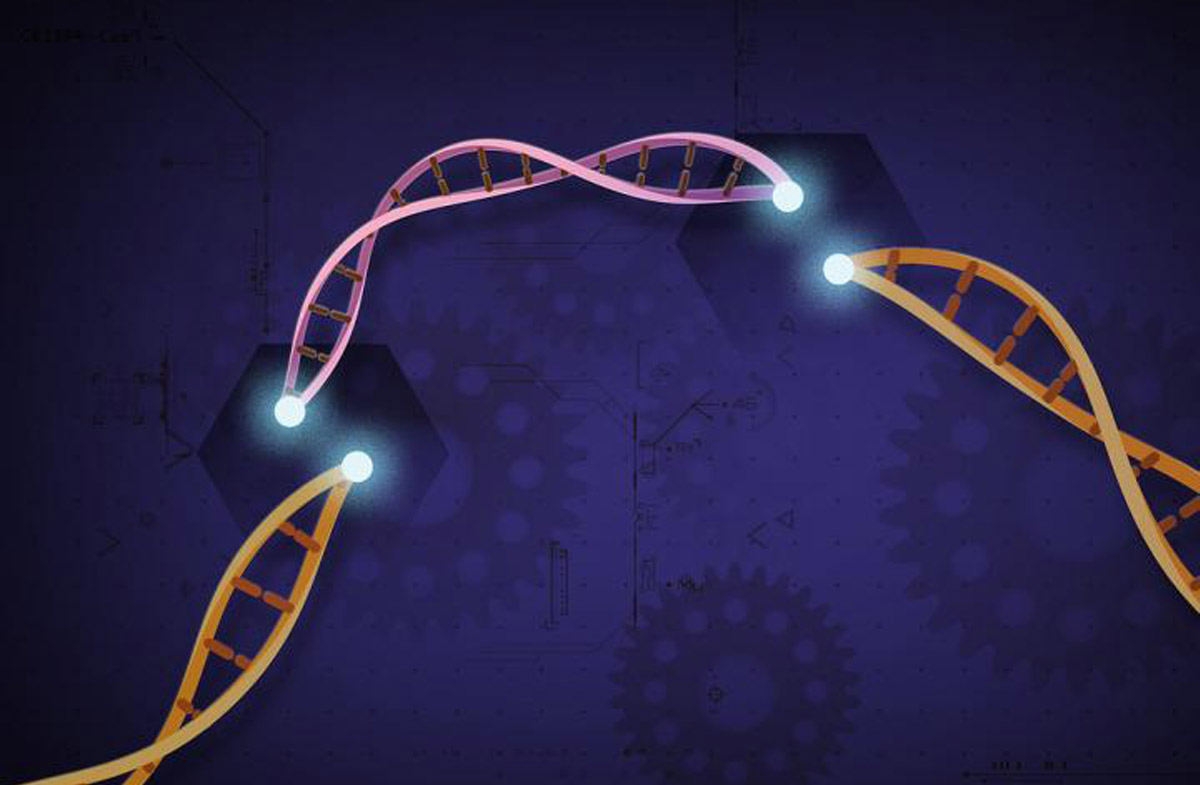
Researcher Establishes CRISPR-Cas12b System for Plant Genome Engineering
March 11, 2020| |
Most people who know CRISPR think of CRISPR-Cas9. However, Yiping Qi and colleagues from the University of Maryland are constantly exploring new CRISPR tools that are more effective, efficient, and sophisticated for different crop applications to help fight diseases, pests, and the effects of a changing climate. Qi and his lab have established a new CRISPR genome engineering system for plant systems for the first time: CRISPR-Cas12b, a versatile, customizable, and ultimately provides effective gene editing, activation, and repression all in one system.
Qi said that this is the first demonstration of the CRISPR-Cas12b system for plant genome engineering that is focused not only on editing but also on developing gene repression and activation. This complete suite of methods is missing in other CRISPR systems in plants such as CRISPR-Cas9 and CRISPR-Cas12a.
CRISPR-Cas12b is more similar to CRISPR-Cas12a, but there was never a strong ability to provide gene activation in plants with this system. CRISPR-Cas12b provides greater efficiency for gene activation and the potential for broader targeting sites for gene repression, making it useful in cases where genetic expression of a trait needs to be turned on/up or off/down. This ability gives CRISPR-Cas12b an edge over CRISPR-Cas12a, particularly when gene activation is the goal. CRISPR-Cas12b retains what CRISPR-Cas12a could do for plants, including the ability to customize cuts and gene regulation across a broad range of applications. In fact, Qi was even able to repurpose the CRISPR-Cas12b system for multiplexed genome editing, making it possible to simultaneously target multiple genes in a single step.
For more details, read the news release on the University of Maryland website.
| |
You might also like:
- Scientists Develop New CRISPR Platform for DNA Targeting
- CRISPR-Cas12a-based DNA Test Used in Disease Detection and GMO Identification
- Pocket K No. 54: Plant Breeding Innovation: CRISPR-Cas9
Biotech Updates is a weekly newsletter of ISAAA, a not-for-profit organization. It is distributed for free to over 22,000 subscribers worldwide to inform them about the key developments in biosciences, especially in biotechnology. Your support will help us in our mission to feed the world with knowledge. You can help by donating as little as $10.
-
See more articles:
-
News from Around the World
- Biotech Crops Market to Exceed US$37.46B by 2027
- Long Wait Over as Kenya Finally Commercializes Bt Cotton
- US Promotes GMO Education to Consumers through 'Feed Your Mind' Initiative
- CRISPR Genome Editing Strategy Could Improve Rice, Other Crops
- GM Food Label Is Unrecognized by Most Consumers in Brazil
- Research Team Discovers Genetic Diversity Improves Yield in Hybrid Crop Varieties
- EU Leading Scientists Warn: "European GMO Laws No Longer Fit"
-
Research Highlights
- Gene from a Mycoparasitic Fungus Confers Enhanced Resistance to Sclerotinia Stem Rot in Soybean
-
Plant
- CRISPR-Cas9 Speeds Up Domestication of African Rice Landraces
- Researcher Establishes CRISPR-Cas12b System for Plant Genome Engineering
-
Read the latest: - Biotech Updates (December 17, 2025)
- Gene Editing Supplement (December 17, 2025)
- Gene Drive Supplement (February 22, 2023)
-
Subscribe to BU: - Share
- Tweet

